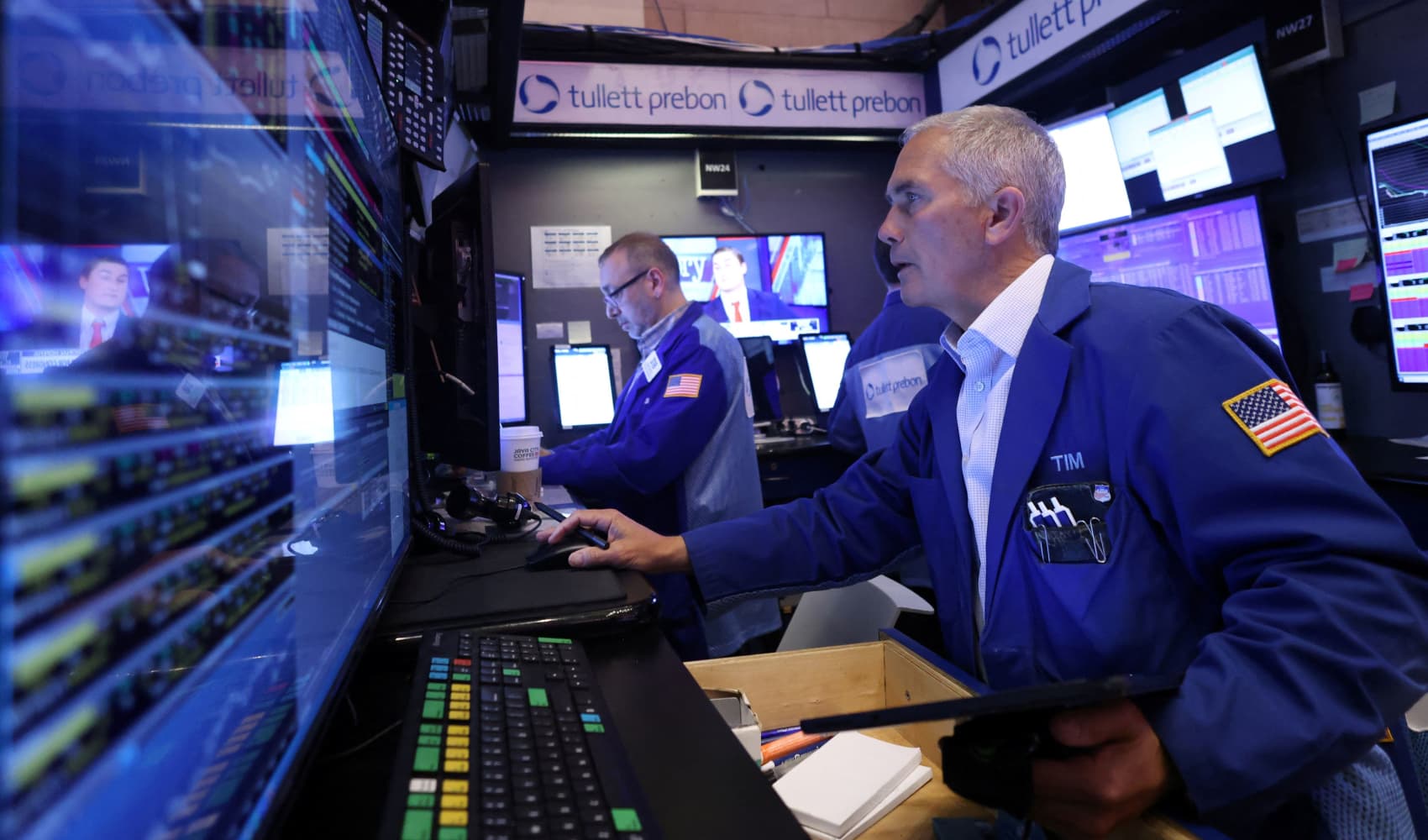
- Today, 1 in 4 women are considering downshifting their careers or leaving the workforce entirely due to burnout, according to the Women in the Workplace study McKinsey & Co. and LeanIn.org.
- Women, particularly women of color, are exhausted due to challenges of the pandemic that include child and elder care.
- Companies have to accommodate all working women by building in flexibility across their organizations to meet individual circumstances, say top HR executives at HP.
The Covid-19 crisis has affected all of us, but not equally. People who have been hit the hardest are those already likely to face disproportionate challenges in the workplace due to their race or gender. That's why focusing on diversity, equity and inclusion has never been more important.
The recent Women in the Workplace study conducted by McKinsey & Co. and LeanIn.org confirms what many of us have experienced firsthand or witnessed within our own organizations: women, particularly women of color, are exhausted. And they are planning to leave the workforce in record numbers.
Today, 1 in 4 women are considering downshifting their careers or leaving the workforce entirely. Before the pandemic, representation of women in leadership roles was slowly growing. Now, all that progress is at risk of being undone. And if that happens, everyone suffers.
Cast a wide net
There isn't a silver bullet policy to retaining women during the Covid-19 pandemic. A working mom who has a child with special needs may require a specific type of support to be able to contribute effectively, while a single mother caring for kids as well as elderly parents will have yet a different set of needs. And the Women in the Workplace research shows a Black woman is more likely to experience a death of a loved one during this pandemic than women overall. We have to accommodate all working women by building in flexibility across our organization to meet individual circumstances.
That means tailoring solutions to meet the individual needs of every employee, understanding that not everyone's experience is the same. We're empowering managers to customize solutions based on the needs of their female direct reports. For example, one of our colleagues supports her family by babysitting her grandchildren on Fridays. We worked with her to compress her work week into four days, rather than five, freeing her up so she can support her family.
Money Report
We are holding training sessions designed to give managers tools for starting these crucial conversations, recognizing microaggressions, exercising empathy and taking steps to resolve issues. These efforts are not only the right thing to do, they are the smart thing to do. When employees feel supported and seen by management, they are more likely to feel connected to the work itself and report higher job satisfaction. They are more likely to stay and grow within an organization. And that's important to the long-term health of a business.
Move fast and offer support that counts
With the pandemic evolving quickly in different areas, we need to offer innovative solutions to address these issues at a faster rate than before. The goal isn't to offer a perfect solution, but to offer as many tools from the toolbox as possible so female employees and managers can co-create a workable solution. Everything from flexible work schedules to educational support to health and wellness offerings.
It takes an integrated approach to address these difficult issues.
At the start of the pandemic, HP's in-house medical doctor hosted virtual office hours and answered employees' pressing questions. We soon realized that homeschooling was here to stay in many parts of the world and working families would be left without support. So we hired teachers to help us develop a "homework club" for tutoring employees' children. We also launched virtual gym classes for kids of all ages.
In addition to offering existing mental health benefits, we started providing financial skills and mental fitness webinars — not just for our employees, but for their entire families. We call this "mental wellness" to help reduce the stigma sometimes associated with mental health issues.
Women need mentors
One of the key findings from the Women in the Workplace study is that women often can't bring their whole selves to work. That's why it's more important than ever to foster a sense of belonging, especially at a time when more people are feeling alienated and isolated. They need to feel it's OK to not join calls at 7 a.m. and to have sponsors standing up for them.
Losing women leaders negatively impacts your organization in many ways. A particularly painful one is the loss of advocates, since women are more likely to be mentors and sponsors than men. Our Catalyst @ HP program is designed to accelerate women's career progression and support them as they transition into management and rise in leadership positions. The sponsorship model has not only helped build a sense of trust and advocacy among our employees, but also led to a dramatic increase in participants' engagement and accelerated career development. Almost 40% of the participating women were promoted or moved into a new role within months of completing the program.
As proud as we are of this work, we also know that working toward diversity, equity and inclusion means constantly reassessing our efforts, disrupting processes and making swift changes when necessary.
Initially, Catalyst @ HP focused on women more broadly. We are now expanding it to focus on HP's Black employees as a way to ensure we are not overlooking opportunities for growing their careers within our organization. This is just one of many examples that underscores how important it is to keep iterating when it comes to creating a truly diverse, equitable and inclusive workplace.
Double down on action
Covid-19 has made this kind of introspection more essential than ever. Companies have a responsibility to not exacerbate the burnout felt by working women, but rather to support their ability to perform effectively.
Now is not the time to lose sight of diversity, equity and inclusion. It's time to double down and expand on these imperatives. It's time to draw upon our deeply held values and strengthen our culture. As our founders said, "the biggest competitive advantage is to do the right thing at the worst time."
If we don't, we will lose the hard-won progress we've made and feel the loss of women and people of color leaving the workforce for decades to come.
If we do, we will continue to benefit from the breadth of experience that a diverse workforce brings to a business. We will create products that better serve the needs of everyone, everywhere. And we will be an active part of the movement toward building a more just and equitable society for all.
—By Tracy Keogh, CHRO, HP, and Lesley Slaton Brown, chief diversity officer, HP
This year has proven that work can be done from anywhere, at any time. Heightened connectivity is critical, and the growth of 5G elevates organizational connectivity to revolutionize work across entire industries, around the globe. Join the CNBC @Work Spotlight event on December 10 to hear from business leaders prepared to propel into this new, transformative era of work and innovation.






